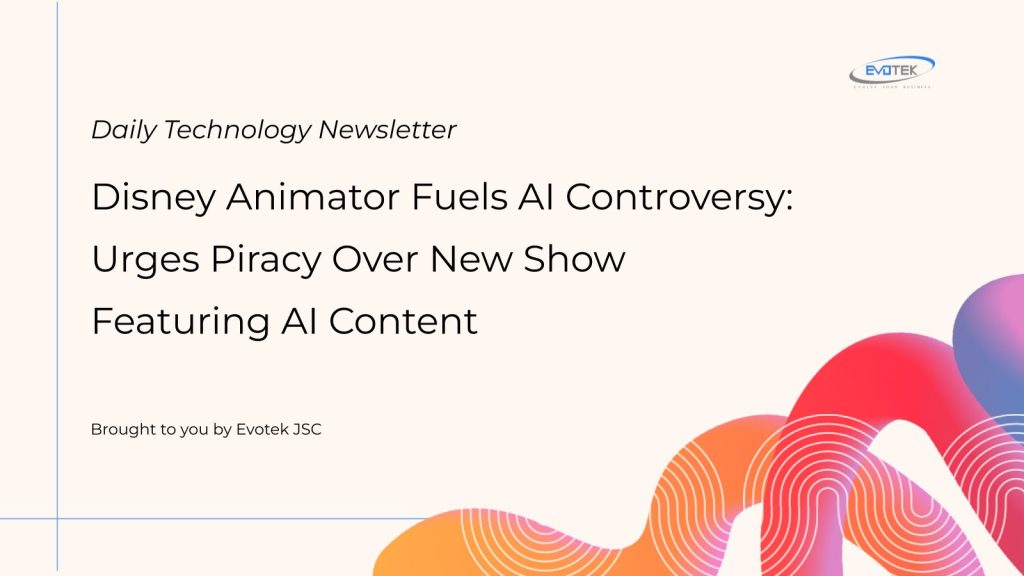A veteran Disney animator has ignited a fierce debate within the entertainment industry, publicly denouncing the studio’s use of artificial intelligence (AI) in a new production and astonishingly encouraging viewers to “pirate” the show rather than support it directly.
The outspoken critique, delivered by a long-standing figure in the animation community, specifically targets what they perceive as a troubling embrace of AI-generated content by Disney executives, including the CEO. This bold statement underscores growing anxieties among creatives about the encroachment of artificial intelligence into traditional artistic domains and its potential impact on human jobs and artistic integrity.
The animator’s unprecedented call to piracy stems from a deep-seated frustration over AI’s integration into an upcoming Disney project. They argue that patronizing a show featuring AI elements sends the wrong message to studio leadership, effectively endorsing a future where algorithms could displace skilled artists and compromise the unique quality of hand-crafted animation. Instead, they suggest that pirating the content would allow audiences to experience the show without contributing financially to what they view as a problematic technological shift.
This controversy highlights a significant fault line emerging across Hollywood and other creative sectors. While companies eye AI for potential cost savings and efficiency, many artists fear job displacement and a dilution of creative output. The animator’s stance serves as a powerful, albeit controversial, form of protest, aiming to draw attention to the ethical and professional dilemmas posed by AI in creative development.
Experts in digital media and intellectual property are closely monitoring the fallout. While the advice to pirate content is generally condemned, its origin from within the very studio it targets makes it an extraordinary act of dissent. It signals a critical moment for Disney and other major studios as they navigate the complex landscape of technological advancement versus the preservation of human artistry and the livelihoods of their creative teams.
The debate extends beyond mere technology, touching upon the very soul of storytelling and visual art. As this issue continues to unfold, it prompts important questions about the future of animation, the role of human creativity in a rapidly evolving digital world, and how studios will balance innovation with the invaluable contributions of their artists.

 日本語
日本語 한국어
한국어 Tiếng Việt
Tiếng Việt 简体中文
简体中文